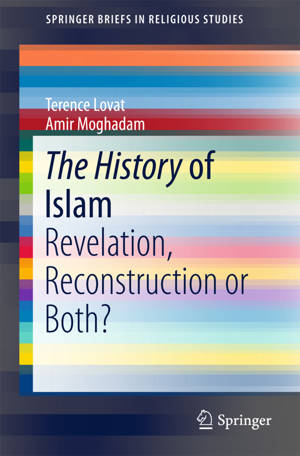
- Retrait gratuit dans votre magasin Club
- 7.000.000 titres dans notre catalogue
- Payer en toute sécurité
- Toujours un magasin près de chez vous
- Retrait gratuit dans votre magasin Club
- 7.000.0000 titres dans notre catalogue
- Payer en toute sécurité
- Toujours un magasin près de chez vous
52,95 €
+ 105 points
Description
Offers an interpretation of the history of Islam that combines a faith perspective with a modern scholarly critique
Tells a story about Islamic foundations that is rarely heard by Muslims or Westerners
Illustrates how Islam can be revered for its achievements even and especially when modern critical scholarship is applied to its foundations
Spécifications
Parties prenantes
- Auteur(s) :
- Editeur:
Contenu
- Nombre de pages :
- 89
- Langue:
- Anglais
- Collection :
Caractéristiques
- EAN:
- 9783319677163
- Date de parution :
- 14-09-17
- Format:
- Livre broché
- Format numérique:
- Trade paperback (VS)
- Dimensions :
- 156 mm x 234 mm
- Poids :
- 149 g

Les avis
Nous publions uniquement les avis qui respectent les conditions requises. Consultez nos conditions pour les avis.






